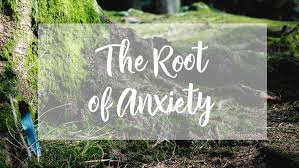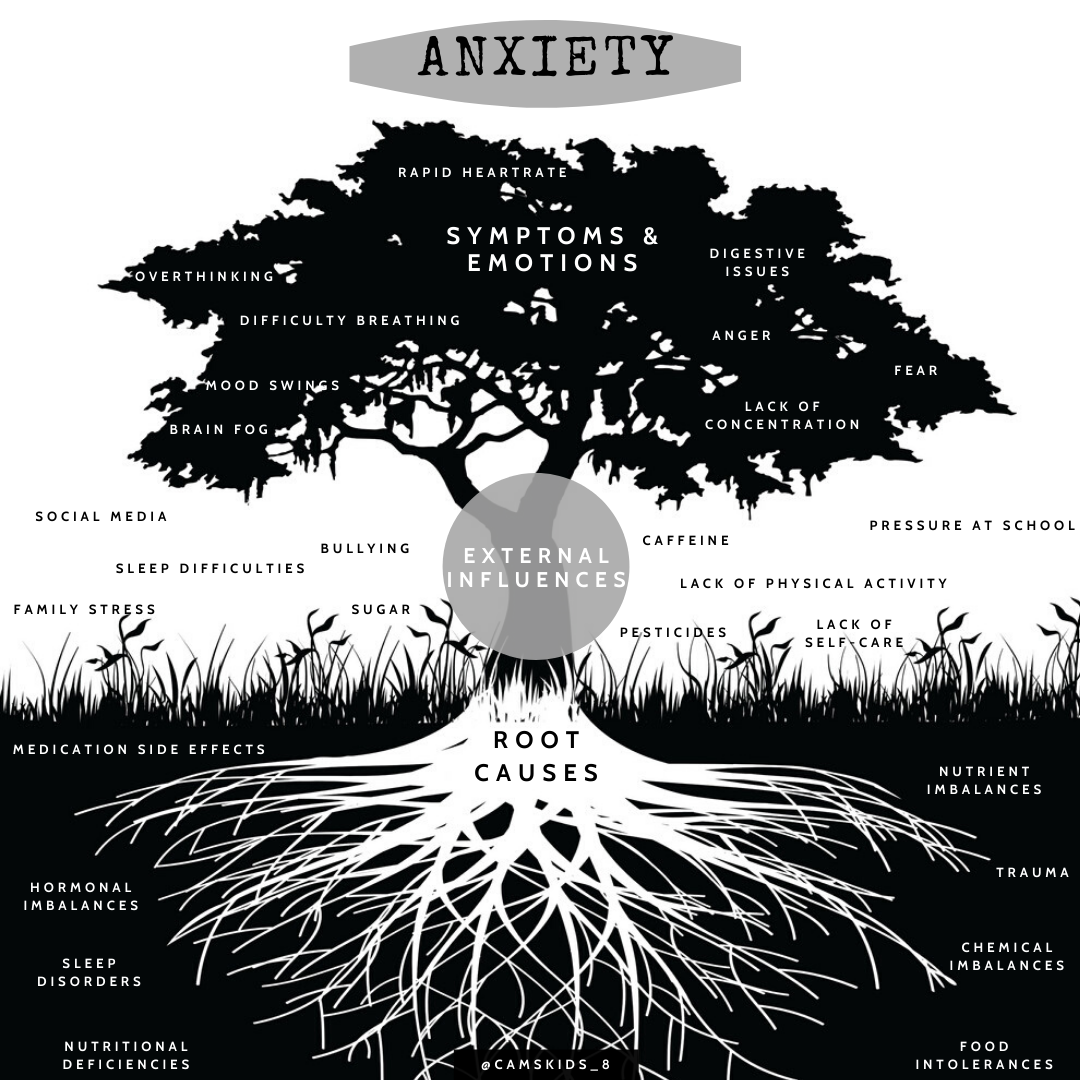
Tips & Tools
Managing your anxiety
Getting to the Root of your Anxiety

Have you ever stopped and thought about how incredible the human body is? It’s strong, powerful, and unbelievably intelligent. Everything it does, it does for a purpose. That includes anxiety.
Anxiety is a message. A loud, impossible to ignore, sometimes body-paralyzing, cry for help. It’s your body’s way of trying to get you to pay attention to something; alerting you that something in your life needs to change.

Unfortunately, many of us treat our anxiety by addressing its symptoms. We use medication, mindfulness techniques, dietary adjustments, etc. to make our symptoms disappear. While some may experience temporary relief, in most cases, anxiety inevitably returns.
This is because anxiety is so much more than its symptoms, these are just sirens – desperate attempts from your body to try and get your attention. Now, what are you supposed to pay attention to? That's different for all of us. It’s the deep-seated foundation of your anxiety; the birth of its symptoms and manifestations. Some examples could include:
- Trauma (physical, emotional, psychological, or spiritual)
- Nutritional imbalance (ie. vitamin/mineral deficiency, absorption issues, etc.)
- Food intolerances/inflamed gut
- Chemical imbalances (ie. hormonal imbalance)
- Undiagnosed phobia(s) (ie. unknown fear of something)

Again, everyone’s story is different. It’s about learning your story and embarking on a journey to find out why you’re feeling anxious. This takes time. It takes trial and error. With patience, dedication, and kindness to yourself however, you WILL find what you’re looking for.

Self-reflection and journaling are great places to start. Below are a list of questions you may ask yourself to help you begin your journey. We encourage you to write these down or if you prefer, you may download Self-Reflection Questions in PDF format and print them off.
Work through these questions slowly, taking breaks often. Taking your time grants you the opportunity to truly self-reflect. It may take a few days or weeks to get through them and that’s ok!
IDENTIFYING A TIMELINE:
- “How long has it been since I felt differently than I do now?”
- “What has changed in my life since then?”
- “Are there other times in my life where I felt similar to how I do now?”
- “If so, were there any parts of my life at that time that were different to how it is now? If so, what things? Were these parts more positive or negative?”
IDENTIFYING ANXIETY SYMPTOMS:
- “Are my anxiety symptoms always the same? Do they come all at once, or progressively build up?”
- “When I feel anxious, my natural reaction is to do what?”
- “If they are different, are there certain symptoms that always present together?”
IDENTIFYING ANXIETY TRIGGERS:
- “Looking at this list, can I see any commonalities?" Ie. any common situations that trigger your anxiety, such as social interactions, public spaces, school, spending time with friends, etc.
- “What situations in the past week have made me feel anxious? How about this past month?"
- “In these same situations, can I remember what time I felt my anxiety come on?" Ie. morning, after eating, afternoon, dinner time, bedtime, etc.
QUESTIONS TO ASK MYSELF WHEN I'M ANXIOUS:
- "What evidence do I have to support my negative thoughts? Are my feelings based on facts or feelings? What facts do I have?"
- “Am I scared of something or someone? If so, why am I scared?"
- “What about this moment/this day/this week is different than before?"
- "What is really going on right now? What do I think my anxiety is trying to tell me?"
Anxiety is complicated. There are going to be layers to uncover to get to the root, but every discovery is a step in the right direction. These questions are just one way to help you along your journey.
We encourage you to speak with a counsellor or therapist to help you along the way. Psychotherapists and Cognitive Behavioural Therapists are two great examples of professionals that can help! If you do not have a therapist yet, talking with a trusted friend or family member is an amazing place to start. You can also checkout our Ask the Experts page, where you can pose anonymous questions to our panel of experts, as well as read previously asked questions. If you are looking for someone to talk to, text the word CAM to the number 686868 to be connected with a trained professional, 24 hours a day, 7 days a week! You’ll be amazed how powerful simply talking things out can be.
- All
-
29 Nutrition
Nutrition
- 73 Mindfulness and Relaxation
- 27 Student Life
- 8 Exercise
- 51 Treatments & Therapies
- Anxiety Resources

Don't see what you're looking for? Send us an email!
©Copyright 2024 Cam’s Kids powered by Kids Help Phone
Not-for-Profit Organization. B/N: 921508-5
Thanks for visiting Cam's Kids. Please remember...
Cam's Kids is not a service provider.
If you are in crisis, please call 911 or go to your nearest emergency department. For free, confidential counselling, contact Good2Talk or Kids Help Phone.
Post-secondary students: find your local crisis resource here.

